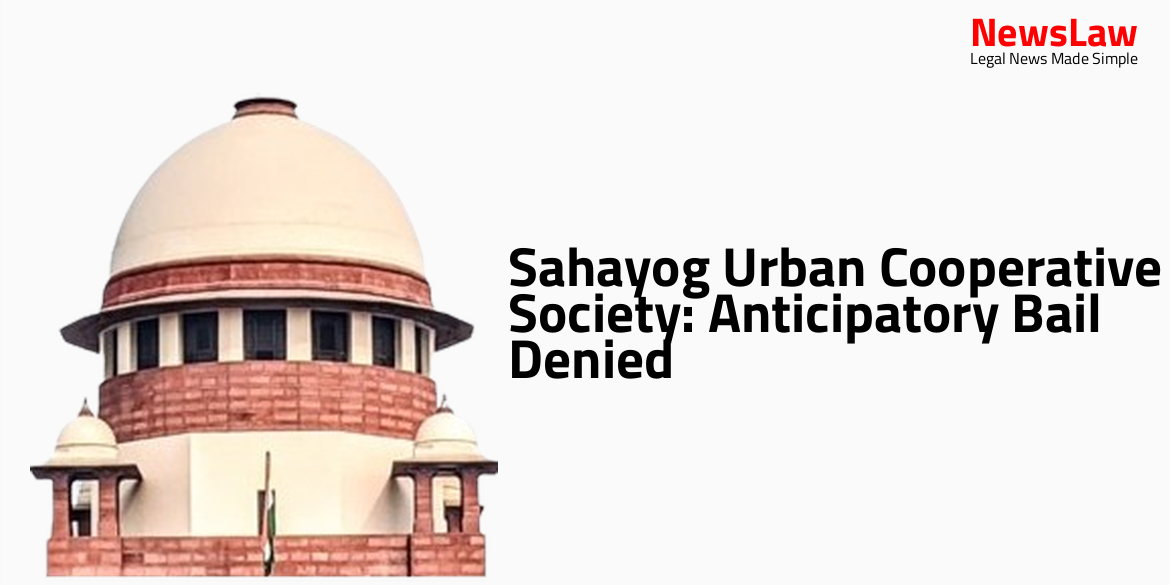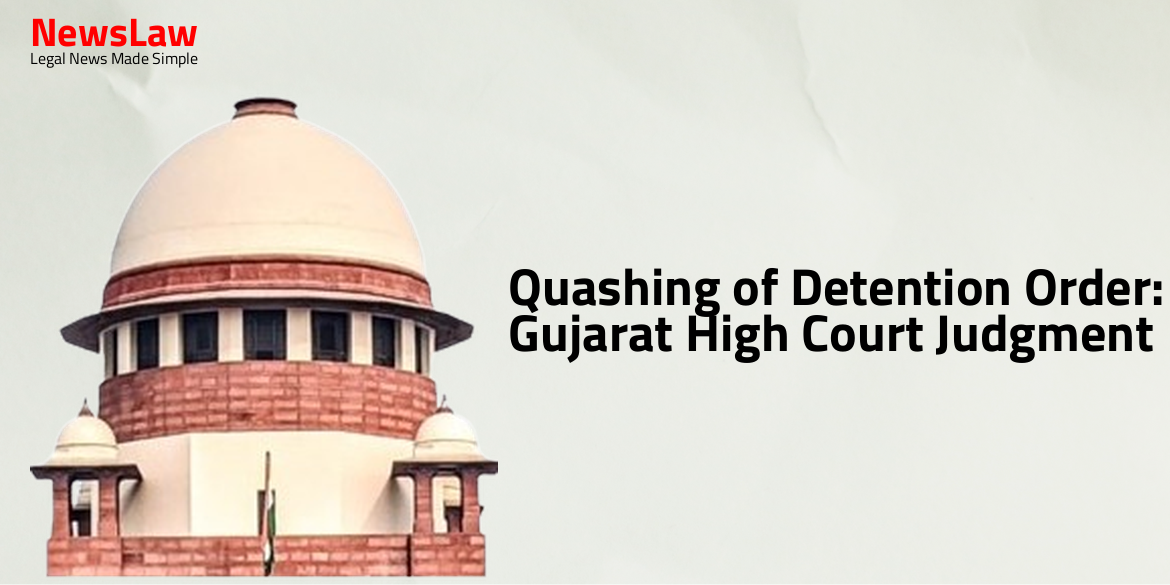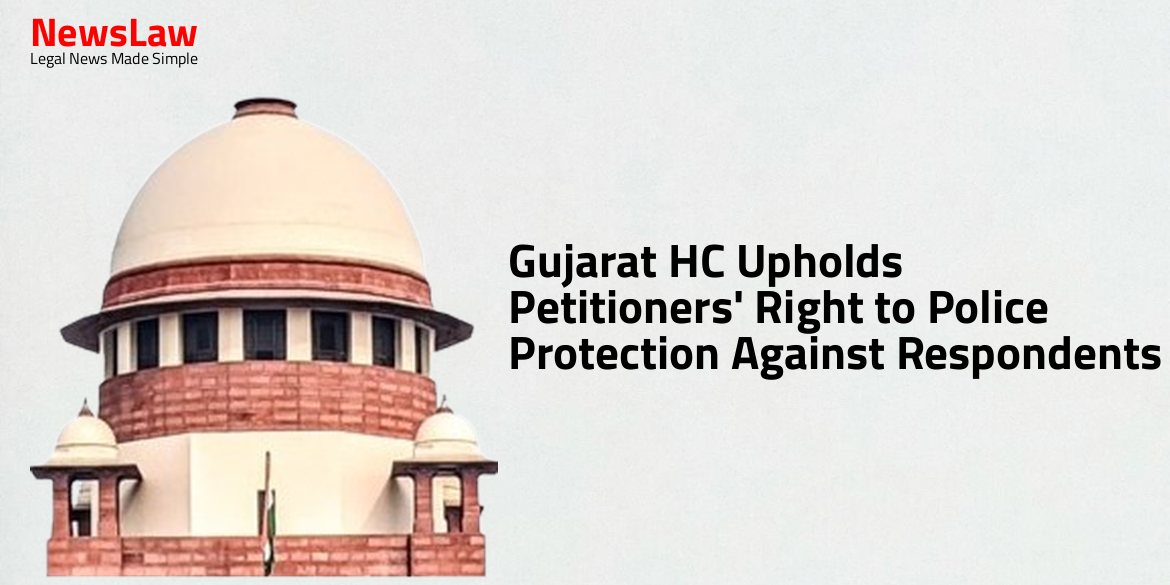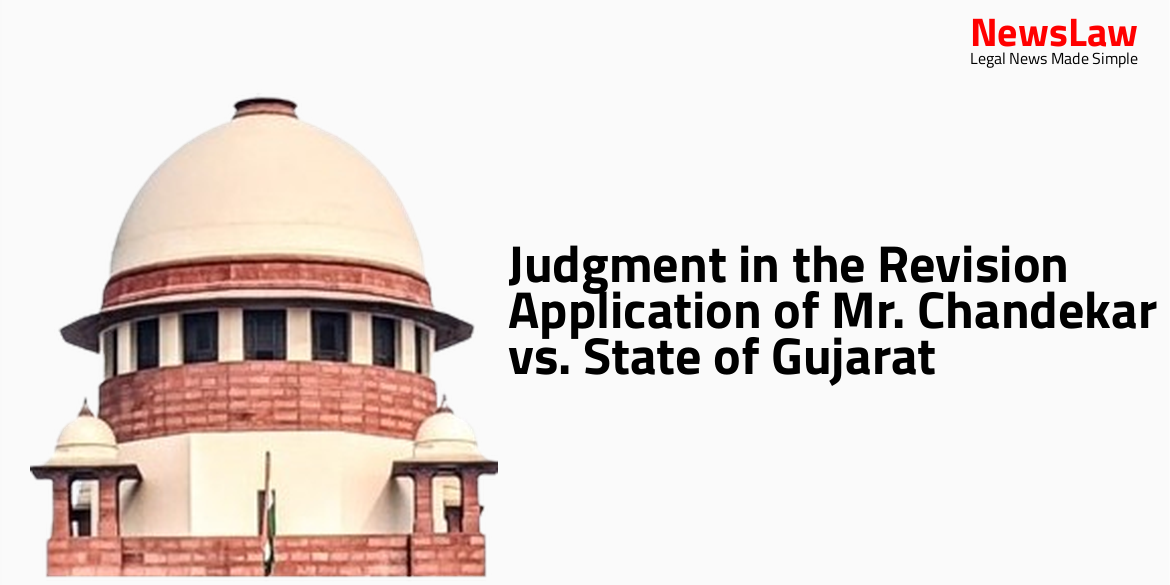The Gujarat High Court recently addressed the case involving the Sahayog Urban Cooperative Society, where anticipatory bail was denied to the petitioner. The society faced allegations of financial misconduct, with the accused being members of the Managing Body. The petitioner sought bail in light of the accusations made against them, but the court ruled against granting anticipatory bail. Find out more about the details of this case and the court’s decision in the following summary.
Facts
- The Sahayog Urban Cooperative Credit and Consumer Society Limited is a registered cooperative society under the Gujarat Cooperative Societies Act, 1961.
- Allegations have been made against the office bearers of the society for obtaining deposits at a higher rate of interest and providing loans to members resulting in losses.
- Audit of the society’s books and accounts was conducted by the Auditor on January 25, 2019, covering the period up to March 2018.
- A special report was submitted by Auditor H.V. Danecha classifying the society as Class-B in audit classification.
- No specific allegations of fund defalcation or offenses have been made against individuals named in the special report.
- The audit for the period from April 01, 2019, to March 31, 2023, was conducted by an Auditor appointed by the District Registrar, Cooperative Societies, Surat.
- The society obtains deposits from its members and provides loans, as revealed in the Auditor’s report.
Arguments
- Petitioner’s advocate argues that the FIR is politically motivated and the petitioner did not siphon any funds from the Society.
- The audit report does not indicate any fraud by the petitioner, who paid higher interest to known depositors as part of a resolution by the Board of Directors.
- The petitioner maintains he did not commit any offense by following the resolution to pay more interest.
- Bald allegations of wrongful expenses and causing loss to the Society are deemed baseless by the petitioner’s advocate.
- The advocate emphasizes that the petitioner is a permanent resident with no prior criminal record and is willing to cooperate with the investigation.
- In contrast, the complainant’s advocate argues that specific embezzlement allegations establish a prima facie case against the petitioner and opposes anticipatory bail.
- The complainant’s advocate asserts that the petitioner falsified documents, leading to a loss for the Society, and should not be granted bail.
- The State’s advocate supports the complainant’s arguments citing a significant fraud amount and the petitioner’s active role in the offense.
- FIR filed following direction under Section 93 of the Act.
- Argument by Mr. BM Mangukiya that FIR based on audit report could be misfeasance, not criminal act.
- Petitioner’s actions considered unintentional and not malfeasance.
- Specific allegations requiring custodial interrogation against the petitioner.
- Mr. BM Mangukiya requests the Court to dismiss the petition.
Analysis
- Prima facie action of the present petitioner is akin to the act of a termite, weakening the financial fabric of the cooperative society.
- Allegations include multiple sections of the Indian Penal Code and the Gujarat Co-operative Societies Act-1961 against 23 members of the Managing Body.
- The accused are accused of defrauding the society of Rs. 54,22,620/- through excessive and wrongful expenses and payments.
- Grant of anticipatory bail is a matter of judicial discretion based on the nature and gravity of the accusation, possibility of the applicant fleeing, and other factors.
- Economic offences like this impact the economic fabric of society and require careful consideration in granting anticipatory bail.
- The act of the accused hollowed the society from the inside, affecting the self-help and mutual support principles of a cooperative society.
- Anticipatory bail may hamper the investigation process by limiting the ability of the investigating agency to interrogate the accused and collect relevant information.
- The power under Section 438 of the CrPC is considered extraordinary and should be used sparingly in appropriate cases to strike a balance between individual liberty and the needs of the investigation.
- The court must carefully consider the nature and gravity of the accusation, the possibility of the applicant fleeing from justice, and other factors before granting anticipatory bail.
- The judicial discretion to grant anticipatory bail is to be exercised after a thorough examination of the circumstances of the case.
- Grant of anticipatory bail can frustrate the investigating agency in obtaining essential information and materials, especially in economic offenses.
- Extraordinary relief of anticipatory bail not granted due to peculiar facts of the case.
- The grant of bail to the petitioner would not be helpful in this case.
- The court did not find the present case suitable for exercising discretion to grant anticipatory bail.
Decision
- Petition dismissed due to failure to meet legal requirements.
- Judgment summary focuses on the specific part regarding the failure of the petition.
- No relief granted to the petitioner as the petition fails and stands dismissed.
Case Title: MAHESHBHAI BABUBHAI MANGUKIYA Vs. STATE OF GUJARAT
Case Number: R/CR.MA/6706/2024



